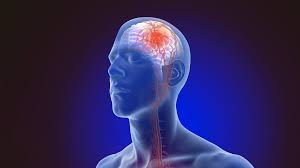
New Study Reveals Accelerated Cognitive Decline in Older Stroke Survivors
A recent study has unveiled troubling findings for older stroke survivors, showing that a stroke is not only associated with an immediate cognitive decline but also with accelerated long-term deterioration in mental functions. The research, published on October 2 in JAMA Network Open, emphasizes the critical need for early intervention in managing vascular risk factors to potentially mitigate cognitive decline in stroke patients.
Conducted by Jessica W. Lo and her team at the University of New South Wales in Sydney, the study analyzed data pooled from 14 population-based cohort studies to chart cognitive trajectories before and after a stroke. The large-scale analysis included 20,860 participants, with an average age of 72.9 years, who were followed for a median of 7.51 years.
The results are sobering. The study revealed a significant acute drop in cognitive function following a stroke, with global cognition scores plummeting by 0.25 standard deviations (SD) on average. This decline was observed across all cognitive domains, including the widely used Mini-Mental State Examination, with scores ranging from a drop of 0.17 to 0.22 SD. Following this acute phase, stroke survivors experienced a marked acceleration in cognitive decline, with global cognition deteriorating at a rate of −0.038 SD per year. This rate of decline, while faster than that seen in stroke-free individuals, affected all cognitive domains except memory, where no additional post-stroke decline was detected.
Interestingly, the study found no significant difference in the rate of cognitive decline among stroke survivors before experiencing a stroke compared to individuals who remained stroke-free. For those without a history of stroke, the average rate of cognitive decline in global cognition was −0.049 SD per year.
These findings highlight the lasting impact a stroke can have on mental faculties and underscore the urgency for proactive measures in stroke prevention. “Targeting modifiable vascular risk factors at an early stage may reduce the risk of stroke but also the subsequent risk of stroke-related cognitive decline and cognitive impairment,” the study authors noted.
The research points to the need for aggressive management of known vascular risk factors such as hypertension, diabetes, and high cholesterol levels, which are commonly associated with cognitive impairment and stroke. By addressing these factors early, healthcare professionals may be able to offer some protection against the sharp cognitive decline associated with stroke, thereby improving long-term outcomes for survivors.
While the findings provide a stark picture of the cognitive challenges faced by stroke survivors, they also open the door to potential therapeutic strategies aimed at preserving brain health post-stroke. However, it’s worth noting that several authors of the study disclosed ties to the pharmaceutical industry, which may influence the interpretation of findings related to therapeutic interventions.
Overall, the study sheds light on the urgent need for targeted strategies to manage cognitive health in older adults, particularly those at risk of or recovering from stroke, making it clear that stroke prevention extends beyond immediate physical rehabilitation to preserving long-term mental well-being.